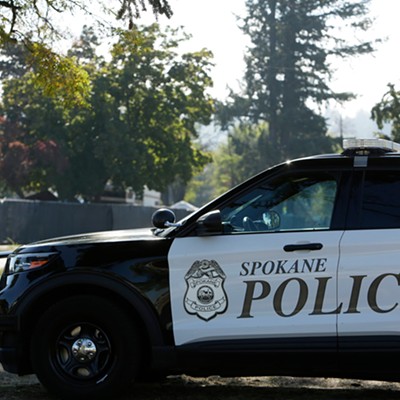Referendum 74 (Gay Marriage)
APPROVED
“All men are created equal.” That’s an ideal America hasn’t always lived up to, but there it is, beseeching us. When we have to answer the most soul-searching questions civic life can ask, we often can’t help but turn to the Founders for advice.
The struggle for gay rights is a fight for civil rights, just like ending slavery and getting women the right to vote. As with other movements, the passing of time changes our understanding. The vast consensus among brain experts, psychologists and psychiatrists is that being gay is not a choice. While there’s no complete consensus on what causes sexuality — gay or straight — experts agree it comes from a combination of countless biological and environmental influences and is formed very early in life. Being gay is being human.
Meanwhile, as more and more gays and lesbians have come out, we’ve gotten to know them better — they are neighbors, TV personalities, co-workers, family members. Very rapidly, this has changed America’s perspective; Gallup has found that 53 percent are now for gay marriage, up from 27 percent in 1996. That pace of change can be disorienting, and unfortunately the issue has provided an emotional wedge for too many political cynics to win elections with. That’s why, so far, gay marriage is zero for 32 when put directly to voters.
But in Washington, it’s been different. In an example of how a state legislature can lead, it started with the granting of domestic partner rights to same-sex couples. In 2009, Referendum 71 was put on the ballot to reverse that legislation, but state voters kept those new rules in place. Earlier this year, the Legislature granted full state recognition for same-sex couples wanting to get married. And now we have R-74 seeking the public’s final blessing to keep full rights in place. That kind of measured approach creates change that will last.
This is a personal question of conscience made even tougher for those who feel like they may be violating the beliefs of their church. Many religious leaders, often citing scripture, oppose gay marriage. Many congregants, often citing the teachings of Jesus, do not. In fact, the Pew Forum on Religion and Public Life recently found that nearly 60 percent of American Catholics support the rights of gays and lesbians to marry.
It’s also worth pointing out that a vote for R-74 is not a vote against religious freedom. As stated plainly in the ballot language, churches and religious organizations are always free from state influence to continue their own traditions as they wish.
Another argument against R-74 is that the state would be exposing children of same-sex partners to some kind of dangerous parenting. “No research,” however, “supports the widely held conviction that the gender of parents matters for child well-being,” according to the Journal of Marriage and Family in 2010.
The passage of R-74 would be another proud moment in our civil rights history. And along with similar ballot measures in Maine and Maryland, it could mark a new beginning — a change that could be cemented further depending on how the Supreme Court handles cases on the Defense of Marriage Act and California’s Proposition 8, if they even decide to hear those cases.
Change is at our doorstep, and it will serve Washington well to embrace a more inclusive future. With a yes vote, you can also remind America of its place in the world as a land of equality.
Initiative 1240 (Charter Schools)
YES
It’s been two decades since the first charter school in America opened in St. Paul, Minn. Aimed at kids at risk for dropping out, the Minnesota City Academy was designed by teachers, with input from parents, and is now sponsored by a local university. Since that time, charter schools have flourished — 41 states allow them, with some 2 million students in attendance.
Clearly, parents like charter schools.
There has been opposition in Washington state, centering on the valid concern that too many resources will be diverted, and too many students will be left out. While it’s true that there would be only so many slots available, that’s not a good enough reason to shut the door on an experiment that is paying dividends in so many states.
I-1240 would only allow 40 such schools here over five years. That’s enough to experiment without overdoing it. And interested groups could create schools with a variety of goals. Some tap into existing institutions to help low-income kids, as the University of California in San Diego has done with its Preuss School. You can focus on the wider world, as the Sturgis School in Massachusetts does in partnership with schools in Honduras. Or you could focus a district’s arts efforts, as with the Idaho Arts Charter School in Nampa.
Charter schools are not a cure-all, but after 20 years they have generally proven to be effective. In the best case, passing I-1240 would unleash that innovative spirit our state is so famous for. In education, as in everything we do together, we have to keep trying to improve.
Initiative 1185 (Two-Thirds Majority on Tax Increases)
No
What’s an election without another Tim Eyman initiative? He’s got to keep his enterprise going, which may be why he worked on more than 20 initiatives this year to micromanage the Legislature — one even to revisit Seattle’s ban on plastic grocery bags. Of those, only I-1185 made the statewide ballot.
Eyman’s on a bit of a losing streak, as he has only passed one initiative since 2004 that has remained in effect. Now he’s back with 1185, aka the son of 1053 (declared unconstitutional), which was itself the son of 960 (overridden by legislators).
Eyman wants the Legislature to have to pass any tax increase via a two-thirds majority. The Legislature, especially in tough economic times, has a hard enough job balancing the needs of the state with the dollars coming into the coffers — there is, after all, a balanced budget requirement in effect ruling Olympia. By boxing in our elected officials, we make solutions harder to come by, which always hits state education hardest. That’s been the experience in both Oregon and California, where a variety of legislative correctives have plunged their public schools into crisis.
Our elected officials are quite aware of the need to hold the line on taxes, and if you don’t like the way they are doing their jobs, by all means vote for somebody new to represent you. But if you support this measure, be aware that the message you send would be more like cutting off your nose to spite your face. Let our legislators do their jobs.




















